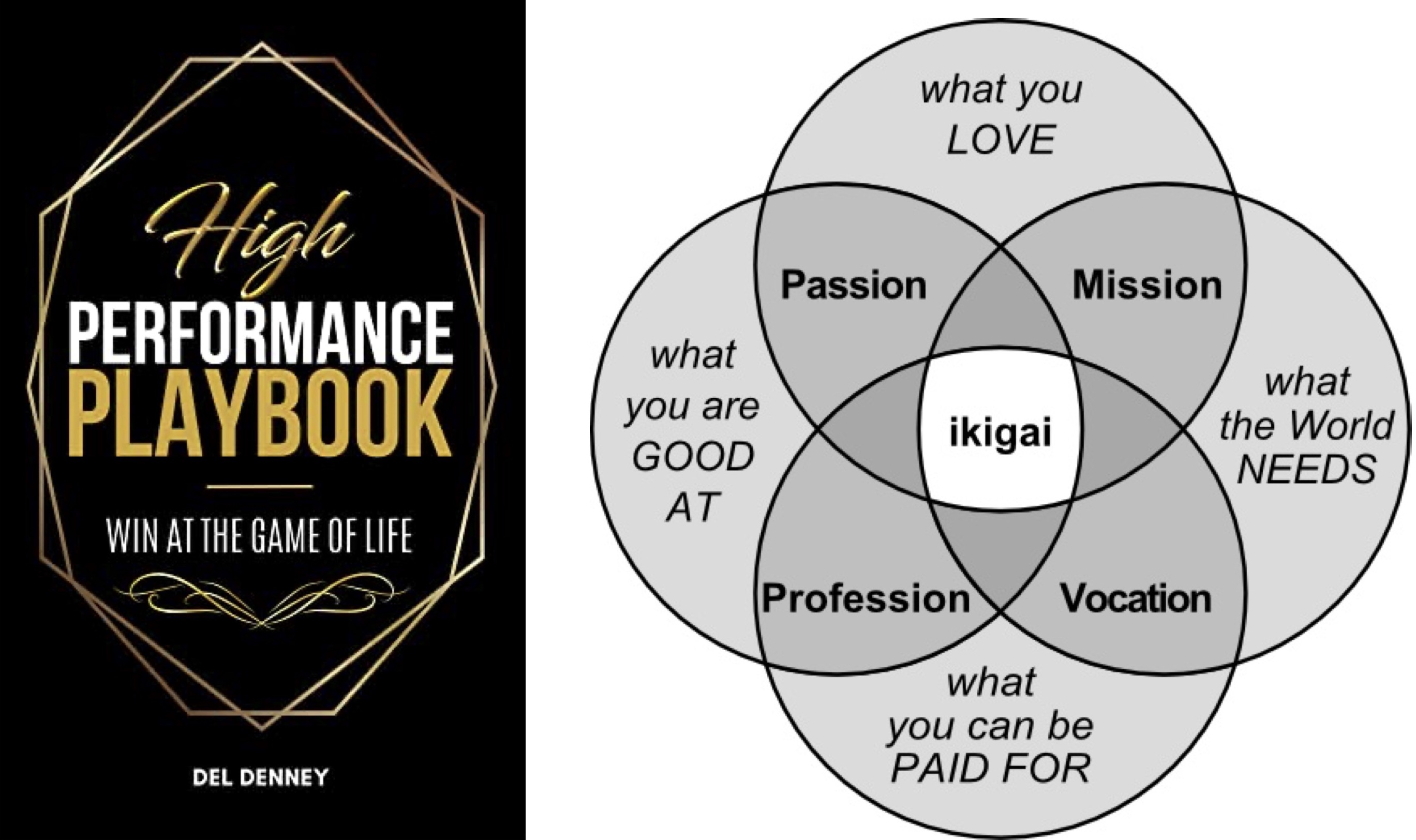Ikigai and the High Performance Playbook
30 Jun 2022
Del Denney is a performance coach who helps business leaders, athletes, and other professionals to achieve better results. Most of his coaching sessions are conducted one-to-one or in small groups. I am one of Del’s clients, and his expertise has enabled me to increase my performance in the time since we met.
When I learned that Del was writing a book, I was excited because books are a great way for coaches to offer their thoughts to a wider audience. This article will discuss one of the concepts covered in Del’s High Performance Playbook, the Japanese philosophy of Ikigai.
What is Ikigai?
The literal translation for Ikigai is “reason for being”. We might think of it as one’s purpose. The Ikigai philosophy comes from the Okinawan Islands in the nation of Japan. People in Okinawa have an average lifespan of 84 years, longer than most places on planet Earth. Many Okinawans consider Ikigai to be a contributing factor in their long lifespan.
Four Questions
Your answers to four fundamental questions will define your Ikigai:
- What do you love?
- What are you good at?
- What can you get paid for?
- What does the world need?
The Venn diagram at the top of this post gives a visual representation of the questions, and Ikigai lies at the intersection of the four questions. The Ikigai diagram might remind you of the Hedgehog Concept from the book Good to Great. Ikigai certainly came first!
Profession, Mission, Passion, and Vocation
Digging further into the philosophy and the diagram, here’s how the four questions are related:
| Your… | is determined by these intersections. |
| Profession | What you’re good at and what you get paid for. |
| Mission | What the world needs and what you love. |
| Passion | What you love and what you are good at. |
| Vocation | What the world needs and what you can be paid for. |
Next Steps
Ikigai is only one of the concepts described in the book. The remainder of the book offers advice on how to take action. Readers will learn how to move forward in the face of fear, how to deal with the small voice inside our heads that tells us what we cannot do, and more.
High Performance Playbook is well worth reading. Highly recommended.



